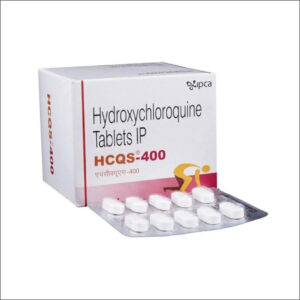Colorectal cancer (CRC) is a major public health concern and ranks among the leading causes of cancer-related deaths globally. Early detection through effective screening can significantly improve survival rates and reduce the burden of the disease. Two of the most widely used non-invasive screening methods are the Multitarget Stool DNA (mt-sDNA) test and the Fecal Immunochemical Test (FIT). Although both tests are designed to detect early signs of colorectal cancer, they differ substantially in terms of cost, sensitivity, and implementation.
Multitarget Stool DNA test
The Multitarget Stool DNA test, commonly marketed under the brand name Cologuard, is an advanced diagnostic tool that detects specific DNA markers shed by cancerous or precancerous cells into the stool. It also includes a hemoglobin immunoassay component to detect occult (hidden) blood in the stool, which is a traditional marker for CRC. This dual approach—analyzing both DNA mutations and blood—makes mt-sDNA more comprehensive than FIT, which only tests for blood.
Higher Sensitivity
Clinical trials and studies have shown that mt-sDNA has higher sensitivity for detecting colorectal cancer and advanced adenomas (precancerous polyps) than FIT. For example, mt-sDNA can detect more early-stage cancers and large, high-risk polyps that may eventually progress to cancer. This makes it an appealing choice in terms of diagnostic accuracy, especially for individuals with higher risk profiles or those reluctant to undergo more frequent screenings.

However, the increased diagnostic performance of mt-sDNA comes with a significant drawback—its cost. An mt-sDNA test typically costs $500 to $600 per test, while FIT costs around $20 to $30. This substantial price difference makes mt-sDNA testing a more expensive option, especially when considering large-scale screening programs or individuals without adequate insurance coverage. Although mt-sDNA is recommended every three years (compared to FIT, which is done annually), the cost remains considerably higher even when averaged over time.
Healthcare systems and policymakers must consider these cost differences when choosing which test to recommend or reimburse. FIT is widely used in national screening programs because it is cost-effective, simple to administer, and has a quick turnaround time. Its affordability allows broader access, especially in public health settings and low- to middle-income populations. In contrast, mt-sDNA may be more appropriate in selective cases—such as for patients with a family history of colorectal cancer, those who are non-compliant with annual testing, or in private healthcare systems with more flexibility in budget allocation.
Another concern with mt-sDNA is its higher false-positive rate compared to FIT. This means that more patients who receive a positive result may undergo unnecessary colonoscopies, which are invasive, costly, and carry potential complications. While this could be seen as a proactive approach for high-risk individuals, it could also strain healthcare resources and cause anxiety for patients.
Despite the cost and false-positive risks, mt-sDNA may have advantages in increasing patient compliance. Because it is done less frequently and comes with an easy-to-use home collection kit, some studies show that patients are more likely to complete the mt-sDNA test than repeat FIT tests every year. This could make a difference in real-world settings, where regular compliance is a challenge.
Conclusion
Multitarget Stool DNA (mt-sDNA) testing represents a more advanced and sensitive method for colorectal cancer detection compared to the Fecal Immunochemical Test (FIT). Its ability to identify both cancerous and precancerous lesions through DNA markers and occult blood testing offers a diagnostic advantage, particularly in detecting early-stage disease. However, this benefit comes at a significantly higher cost, making mt-sDNA less accessible and potentially less practical for widespread population screening.
FIT remains the more affordable and widely used option, especially in public health settings, due to its lower cost, annual testing schedule, and ease of implementation. While mt-sDNA may be valuable for specific patient groups—such as those at higher risk or less compliant with annual testing—the decision to use one test over the other should be based on clinical need, patient preferences, and healthcare system capabilities.
Ultimately, both tests contribute meaningfully to the early detection and prevention of colorectal cancer, and their combined availability enhances personalized screening strategies, helping reduce the global burden of this disease.
Our Products
-
Hydroxychloroquine 400MG
$1.50 / Per Pill
-
Hydroxychloroquine 200MG
$1.00 / Per Pill
-
Ivermectin 3MG
$1.00 / Per Pill





